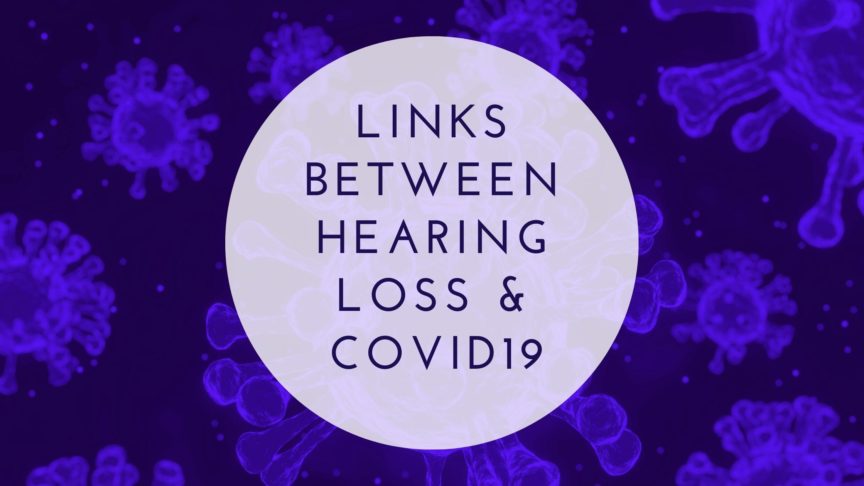- The Impact of Pets on Emotional and Hearing Health - April 26, 2024
- Strategies for Coping with Single-Sided Deafness - April 16, 2024
- Effective Strategies for Sharing Your Hearing Loss Journey - April 16, 2024
The COVID-19 coronavirus is most known for its respiratory symptoms, and indeed these are the direst, particularly for the elderly and immunocompromised. However, in addition to respiratory symptoms, COVID-19 produces a wide range of other symptoms ranging from hair loss and a loss of the senses of smell and taste to Parkinson’s disease, heart inflammation, and acute kidney injury. These wide-ranging effects make it difficult to grasp the totalizing effect of a COVID-19 infection unless you have experienced one.
The good news is that many reports show that vaccinations are eliminating these long-term effects for many people, providing relief amidst the fear that these symptoms might be permanent. Another symptom that has arisen in very high rates among COVID-19 patients is tinnitus. Those who had tinnitus prior to an infection have found that their symptoms got worse, and many people developed tinnitus during pandemic conditions. Let’s take a look at what tinnitus is, the relationship with hearing loss, and whether these conditions might be related to COVID-19, as well.
Tinnitus and Hearing Loss
Tinnitus is the experience of hearing sound that originates from within the body. The rarer form of tinnitus is called “objective,” in that a doctor can locate a part of the body that is actually emitting sound, such as the bone structure of the ears or a blood vessel near the ears.
The far more common type of tinnitus is “subjective,” meaning that only the individual can hear that sound that occurs somewhere between the inner ear and the brain. The sounds that people hear are commonly referred to as ringing, but others say their tinnitus sounds more like hissing, whooshing, roaring, or buzzing. Even if the person cannot hear the sound of tinnitus literally at all times, it is persistent and tends to come back with regularity. Most people find that quiet environments are the most difficult for tinnitus, including the moments before falling asleep.
Tinnitus can be caused by the same factors that create hearing loss, as well. Exposure to noise and the natural progression of age are the two most common causes of both tinnitus and hearing loss, so many people have both at the same time. It seems that damage to the tiny hairlike organelles of the inner ear called stereocilia can effectively turn on or off their functioning in the subjective experience of the listener, either making them dead spots in hearing ability or a constant ringing tone. Tinnitus and hearing loss don’t necessarily cause one another but they do tend to be co-present for many people.
Relationships with COVID-19
As with many of the side effects of COVID-19, we don’t understand exactly how the virus has its negative effects. Despite the continued effort to understand the virus, we can see statistical results showing how likely it is to correlate with other conditions. Tinnitus has shown up in a very high proportion of COVID-19 sufferers, according to recent studies.
For instance, a new study of more than 3000 people with a preexisting case of tinnitus across 48 countries found that having COVID-19 worsened symptoms among 40% of the participants. However, the study also looked at other confounding factors, such as the stress of the pandemic, self-isolation, loneliness, poor sleep, and lack of exercise. These other factors make it difficult to tell if the infection was the cause of greater tinnitus or if it had to do more with stressors. An additional possibility is that the quieter conditions of life made tinnitus seem worse in comparison to our noisier experiences prior to the pandemic.
The good news is that COVID-19 symptoms have not tended to include new cases of hearing loss at higher rates than in the general population. A few people in the above study did report developing a new case of tinnitus during the time of having COVID-19 symptoms, but they were very few in number. It is difficult to disentangle the effects of stress from the pandemic, because this era has created high stress and anxiety among many people, both highly correlated with tinnitus.
As we seek to better understand the relationship between COVID-19 and other conditions, it is important to prioritize not only your general health but your hearing health, as well. Contact us today to schedule a consultation!

